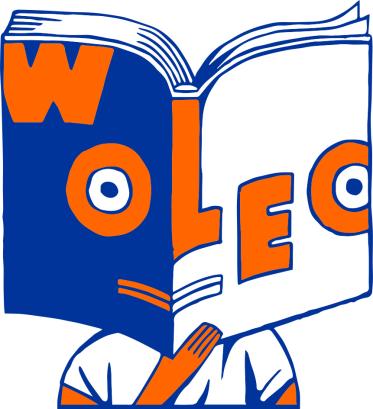
(English version below)
CLIC nodigt jullie graag uit voor de eerstvolgende WOLEC-sessie die plaatsvindt op dinsdag 7 januari van 12:00 tot ten laatste 13:30 in 5C03. Spreker Carmijn Gerritsen (Radboud Universiteit) zal een lezing geven met als titel: "Experimental Negotiations of Identity and Cultural Memory across Contemporary Black British Women's Writing".
Carmijn Gerritsen is een interdisciplinaire Research Master-student in Literatuurwetenschap aan de Radboud Universiteit in Nijmegen. Haar huidige onderzoek richt zich op identiteitspolitiek, cultureel geheugen en postkoloniale studies in hedendaags Black British literatuur – van fictie en poëzie tot theater. Ze is bijzonder geïnteresseerd in de kritische en esthetische manieren waarop schrijvers omgaan met en reflecteren op sociaal-politieke discussies over raciaal gerelateerde gebeurtenissen in Groot-Brittannië. Recent publiceerde ze over de contra-hegemonische verbinding tussen Black Britishness en viering in FRAME Journal of Literary Studies, en momenteel werkt ze aan de politiek van representatie in literatuur en post-Brexit theater. Van september 2024 tot januari 2025 voert ze een individuele onderzoeksstage uit aan het Centre for Literary and Intermedial Crossings aan de Vrije Universiteit Brussel, gericht op de politiek en esthetiek van de representatie van multiculturele identiteiten in hedendaagse Black British vrouwenliteratuur via multimodale en experimentele vormen.
De voertaal is het Engels. Een broodjeslunch wordt voorzien. We vragen u om uw aanwezigheid ten laatste tegen 31 december via deze link te bevestigen. Voor meer informatie over WOLEC, klik hier.
Hopelijk tot dan!
*****
CLIC is excited to invite you to the next WOLEC session, taking place on Tuesday 7 January from 12:00 till 13:30 in room 5C03. Carmijn Gerritsen (Radboud University) will give a lecture titled: "Experimental Negotiations of Identity and Cultural Memory across Contemporary Black British Women's Writing".
Carmijn Gerritsen is is an interdisciplinary Research Master’s student in Literary Studies at Radboud University in Nijmegen, whose current research focuses on identity politics, cultural memory and postcolonial studies in contemporary Black British literature – from fiction and poetry to theatre. She is particularly interested in the critical and aesthetic ways in which writers engage with, and reflect on, socio-political discussions concerning race-related events in Britain. She has recently published on the counter-hegemonic connection between Black Britishness and celebration in FRAME Journal of Literary Studies, and is currently working on the politics of representation in literature and post-Brexit theatre. From September 2024 to January 2025, she is conducting an individual research internship at the Centre for Literary and Intermedial Crossings at Vrije Universiteit Brussel, focused on the politics and aesthetics of representing multicultural identities in contemporary Black British women’s writing through multimodal and experimental forms.
The lecture will be held in English. A sandwich lunch will be provided. We ask you to confirm your presence via this link by 31 December. For more information about WOLEC, click here.
We hope to see you there!

Abstract
Contemporary Black British women’s writing holds unique affordances as an influential site through which marginalised perspectives can be explored. The dynamic interplay between socio-political engagement and aesthetic experimentation is important here as writers have been mobilising critical discussions around race and displacement in formally innovative ways. This can for instance be observed in relation to the diversity of recent cultural responses towards race-related events in Britain, whereby activist means are adopted to trace matters which are both personal and political at once. In particular, this research talk will examine how contemporary Black British women writers’ employment of experimental forms enables them to give expression to issues of identity and cultural memory. After providing a concrete overview of recurrent debates and observations, my exploration of Victoria Adukwei Bulley’s multifaceted poetry collection Quiet (2022) and Diana Evans’ realist novel A House for Alice (2023) will showcase how the use of formal strategies such as self-reflexivity, multimodality and narration enables the authors to give centre stage to changing approaches to belonging and remembrance. This will highlight the role of cultural mediation in amplifying silenced and marginalised voices in the current socio-political landscape of Britain.
